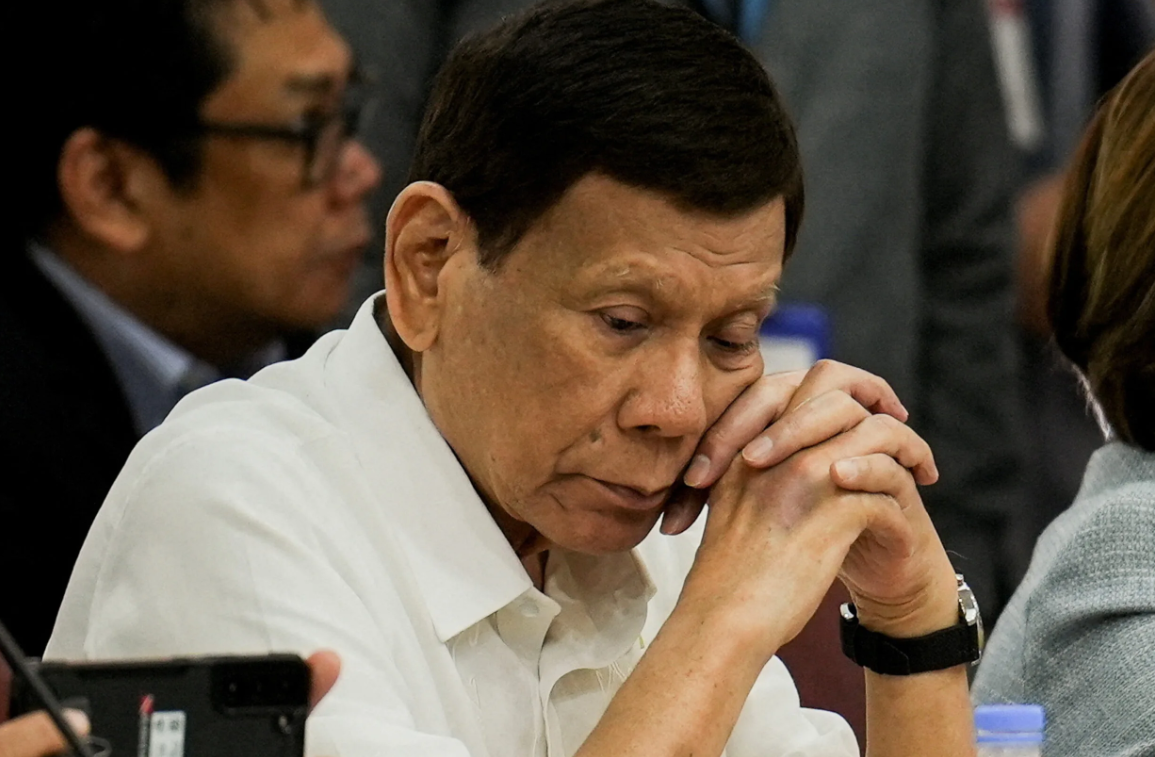MANILA — Former Philippine President Rodrigo Duterte, whose brutal “war on drugs” left thousands dead during his 2016–2022 tenure, was arrested Tuesday upon arrival at Manila’s international airport under an International Criminal Court (ICC) warrant. The arrest marks a pivotal moment in the global body’s years-long probe into alleged crimes against humanity linked to his anti-narcotics campaign.
Arrest and Immediate Reactions
Duterte, 79, was detained upon returning from Hong Kong and is currently held at Manila’s Villamor Air Base. His successor, President Ferdinand Marcos Jr., confirmed the arrest but did not outline next steps. In a video shared by his daughter Veronica, Duterte questioned the legality of his detention: “What is the crime I committed? I was brought here against my will. Someone must answer for depriving my liberty.”
The Drug War Legacy
Duterte’s presidency was defined by his ruthless crackdown on drugs, which he vowed would “rid the Philippines of addiction.” Official police figures cite 6,200 suspects killed in “self-defense” shootouts, but activists and the ICC estimate up to 30,000 deaths, including extrajudicial killings of slum-dwellers and individuals on drug watchlists. Rights groups allege systematic executions and cover-ups by police—claims authorities deny.
ICC’s Jurisdictional Battle
The ICC, which launched its investigation in 2019, asserts jurisdiction over crimes committed while the Philippines was a member state (before Duterte withdrew that year). The Marcos administration initially refused cooperation but shifted stance in November 2023, agreeing to comply with ICC warrants. Duterte had long taunted the court, daring prosecutors to act before his death: “Hurry up—I might die soon. You’ll miss the pleasure of judging me.”
Controversy and Defiance
Duterte’s allies decried the arrest as unlawful. Former legal counsel Salvador Panelo argued the ICC “has no jurisdiction” and accused authorities of denying Duterte legal access. Meanwhile, victims’ families and activists hailed the move as overdue accountability. Randy delos Santos, uncle of 17-year-old Kian delos Santos—whose 2017 killing by police sparked national outrage—called it “true justice.”
Political Reckoning
The arrest intensifies scrutiny of Duterte’s alliance-turned-rivalry with Marcos Jr., whose family he helped return to power. It also revives attention on Leila de Lima, a former senator jailed under Duterte after investigating the drug war. Now free, de Lima stated: “He answers not to me, but to the victims and a world that refuses to forget.”
What’s Next?
If extradited to The Hague, Duterte would become Asia’s first ex-leader tried by the ICC. Legal experts anticipate protracted battles over jurisdiction, while rights advocates stress the symbolic weight of holding a populist leader to account. As global scrutiny mounts, the case tests the Philippines’ commitment to justice—and the ICC’s resolve in prosecuting state-sanctioned violence.

Leave a Reply